Canada
Study in Canada
If you are one of those who seek a high quality of life above anything else, Canada is the place for you. It has been consistently ranked by the UN as the number one country in the world to live in. Having a large Asian Diaspora of students, Canada offers a truly international educational experience.
Furthermore, the Canadian degree or diploma is instantly recognized around the world as being of the highest standard. And you get all this at a remarkably low cost…..both in terms of cost of education and the cost of living. Tuition fees for international students in Canada are much lower than comparable countries.
With over 90 universities and 150 colleges and technical institutes, featuring virtually every program imaginable, Canada may just be the place of your dreams.
This site gives you an extensive insight into how you can turn your dream into reality.
Education System in Canada
Education in Canada is under the complete jurisdiction of the provinces and territories and as such, there is no federal education system in Canada. In keeping with the national commitment to education, public education in Canada is free upto and including secondary school in all the provinces.
However, each provincial system, while similar to the others, reflects its specific regional concerns, and historical and cultural heritage. At the post-secondary level, institutions are divided into community colleges and universities.
There are significant differences between the education systems of the different provinces of Canada. Secondary schooling in Canada could go up to Grade 11, 12 or 13, depending on the province unlike in India, where Grade 12 is standard all over the country.
Post secondary education is offered by four types of educational institutions :
- Universities
- University Colleges
- Community Colleges/Technical Institutes
- Career Colleges
Universities: Canadian universities are largely public funded, and, as a result, offer consistently high quality education at lower tuition rates for international students than their counterparts in competing countries. They offer a broad range of courses and degrees from undergraduate to doctorate and also certificate and professional degrees.
University Colleges : As a component of the Canadian university system, university colleges offer students a choice of either academic oriented university degree programmes or the more practical-oriented college diplomas and certificates. As a part of the Canadian college system, university colleges are distinguished by their strong student support services, small classes and strong campus environments. They also offer combined degree/diploma programmes and university transfer programmes.
Community colleges and technical institutes: They typically have a more vocational-related curricula, with small classes, off-campus course offerings, a greater ratio of laboratory space to class room space, and an interactive teaching style. The uniqueness of Canadian colleges lies in the combination of employer-centered curricula. These institutes have the primary function of responding to the training needs of business, industry, and public service sectors. Most colleges and technical institutes offer diplomas and certificates rather than degrees, however, more and more now grant degrees and applied degrees.
Technical/ Career College : This is a privately owned and operated school with the main objective of preparing students for the job market after a short period of instruction. The emphasis at career colleges is on practical skills over a broad range of programmes. They specialize in such areas as business, computers, and secretarial skills. Although privately owned, these institutes are provincially approved and regulated, ensuring that programmes standards and quality are maintained.
The academic year usually starts in September and ends in May, and is normally divided into two semesters. Some institutes operate on a semester or trimester system and admit students in January and/or May as well as September. Many institutes offer a limited number of courses and special programmes during the summer session.
Type of Certification
-
Certificate is a qualification awarded upon successful completion of a programme which is usually one year in length, and is offered at colleges.
-
Diploma is the qualification awarded on the basis of one or two year's successful study, and is offered at colleges.
-
Undergraduate/bachelors degrees are awarded by a university after four years of full-time study, and lead to graduate level studies.
-
Graduate/post graduate degrees lead to advanced degrees, diplomas and certificates. A pre-requisite to participate in graduate studies is a bachelors/undergraduate degree (4 years).
-
M.B.A. programmes will typically require a minimum of two to three years of relevant work experience, GMAT score of 580-600, TOEFL score of 560-600, and a 4 year degree, and are generally 2 years in duration, though a few institutes offer a fast track option.
-
Pre-requisites to participating in a master's programme is a four year bachelor's degree with high academic standing equivalent to a minimum mid-B grade in Canada (mid 70's); at least two academic letters of reference; and other qualifications as specified, ie., TOEFL, GRE general and/or subject test. Master's programmes generally require two years to complete full time, and usually require a combination of course work and thesis.
-
Doctorate or Ph.D. is a degree ranking above a master's degree, and generally requires four to seven years to complete full time. A combination of course work, original research, and a thesis is required. Prerequisites are typically a master's degree, although direct entry from a bachelor's degree to a Ph.D. programme may be possible depending on the school and programme. Minimum high-B grade in Canada (high 70's) is required; where relevant, demonstrated research competence equivalent to at least a B+ grade; at least two academic letters of reference; and other qualifications as specified, ie., TOEFL, GRE general and or subject test.
-
Post-doctoral programmes are much more specialized, research oriented programmes. One of the most important factors in granting post-doctorate fellowships is the personal network established between the interested applicant and the faculty member within the institution.
Top reasons to study in Canada
-
A degree or diploma from Canadian educational institutions is instantly recognized around the world as being of the highest standard.
-
Tuition fees for international students in Canada are much lower than comparable countries.
-
Canada spends more per capita on education than any other country in the Organization for Economic Co-operation and Development (OECD)
-
There are 100,000 international students from all parts of the world annually in Canada. Your educational experience is sure to be truly international.
-
Canada is renowned all over the world for its tradition of hospitality and tolerance. A remarkable multicultural society ensures that you will be welcomed and made to feel at home during your stay in Canada. More than 600,000 Canadians trace their roots back to India.
-
Canada is a world leader in software development, telecommunications, aerospace, engineering, urban transport, biotechnology, mining technology and environmental industries. As a student, you have a wealth of research and scholars to draw upon a variety of disciplines.
-
Canada offers a wide choice of over 90 universities and 150 colleges and technical institutes, featuring virtually every program imaginable.
-
For all that it offers, Canada has a remarkably low cost of living. Its inflation rate has remained one of the lowest in the industrialized world.
International Students Issues
This section discusses the various issues faced by international students applying to the Australia for education. We discuss here eligibility criteria for Australian institutes, accommodation, health insurance and rules for taking up employment while studying.
Eligibility
Click Here for Eligibility and Entry RequirementsAccomodation
Each institute has its own policy for housing and may offer a range of options for single and married students. Most common types of accommodations are:
School-Provided Homestays : A homestay usually consists of a Canadian family hosting a student in their home while the student attends classes in Canada. This includes meals as well as a private, furnished room. (Cost: CDN $ 400 - $ 800 per month)
School-Provided Residence/Dormitory : Many schools have accommodation conveniently located on or near their campuses. There is usually an option of either shared or private room and dormitories.
(Cost: CDN $ 3000 - $ 7500 per year)
Off Campus Housing : Usually many students share or rent apartments to save costs. Listings of available apartments or homes are published weekly in local newspapers. Rents vary greatly according to the location and time of year. (Cost: CDN $ 250 - $ 700 per month)
International Student Health Insurance
This is another very important criteria for financial planning. Most Canadian Institutes require that all students including international students be covered by an insurance policy that will protect them against medical, hospital bills if they get sick or are injured while studying at the college, as health care is very expensive. Some provinces like Alberta, British Columbia and Saskatchewan cover international students under their provincial health care plans. Students studying in other provinces must arrange for private medical coverage through private insurance companies, which approximately costs about CDN $ 35 per month.
Working, while you Study
Employment opportunities for international students are limited. You should not plan on earning substantial money from a part-time job to help pay for your studies.
On campus : Though international students are allowed to work on the campus of any publicly-funded, degree granting institution, these jobs are often difficult to obtain and do not provide sufficient funds to sustain education costs.
Practical Training : In addition, there may be opportunities for practical training which entail a period of authorized employment, designed to allow foreign students to have professional work experience related to their field of study. For further details, contact the foreign student adviser at the university, after you are enrolled.
Canadian Student Visa
All overseas students are required to obtain a Student Authorization and Visa before going to Canada for studies. Students must also meet the requirements of the Canadian Immigration Act and Regulations. Under normal circumstances, allow at least two months for your visa to be processed.
Visa and Student Authorization Procedure
Submit the completed application kit to the immigration section of the Canadian High commission. Please note that all the documents submitted, must be either original or photocopies notarized and witnessed by a notary public or a magistrate or the Canadian Immigration Officer, and be accompanied by a duplicate copy.
Documents required
Proof of Funds
Every applicant must demonstrate that they have sufficient financial resources available to them to pay tuition fees, maintain him/herself and dependants who go to Canada, and to pay return transportation costs without engaging in employment in Canada. For example, students without accompanying dependants must demonstrate that they have at least $10,000 Cdn plus the cost of tuition for a twelve-month period, plus the cost of transportation to and fro from Canada. Canadian $10,000 is the base amount considered adequate to cover all costs, other than tuition, for one person for a twelve-month period. Some educational institutions require that more funds be available; if the local cost of living is higher than average, more money may also be required.
After the Completed application forms along with the documents are submitted
INTERVIEW - An interview with a Canadian Visa Officer may be required. If this is the case, you will be advised in writing of the time and place for the interview.
MEDICAL EXAMINATION - The Canadian high commission will issue medical instructions. Students and accompanying dependants must pass a medical examination.
If the student and accompanying dependants are found to be in good health and there are no other concerns with the application, the Visa and Student Authorization will be issued.
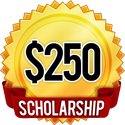
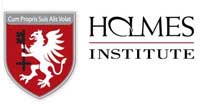
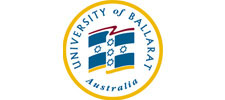

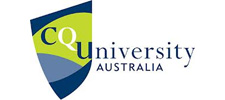
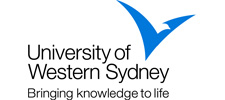

 Study In
Study In